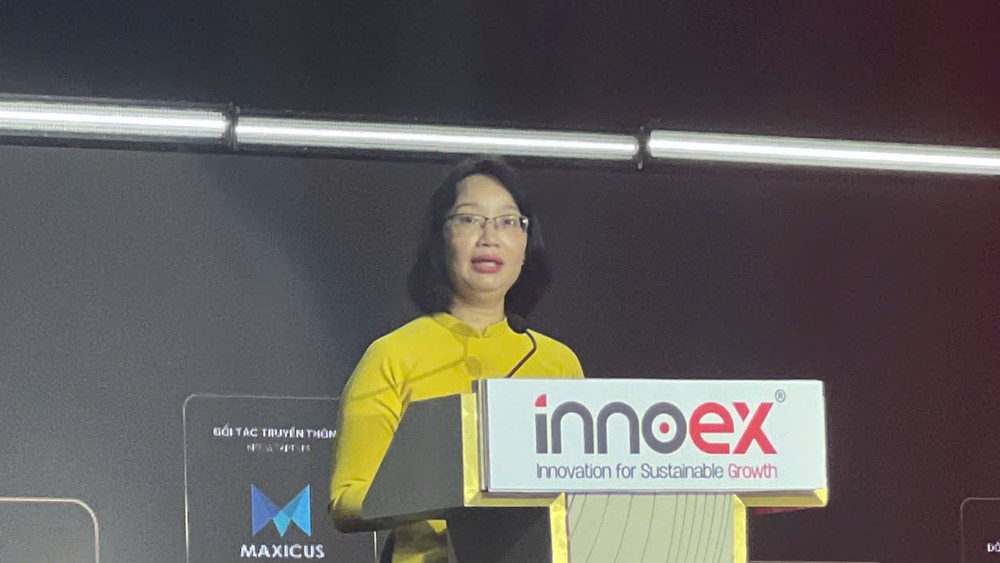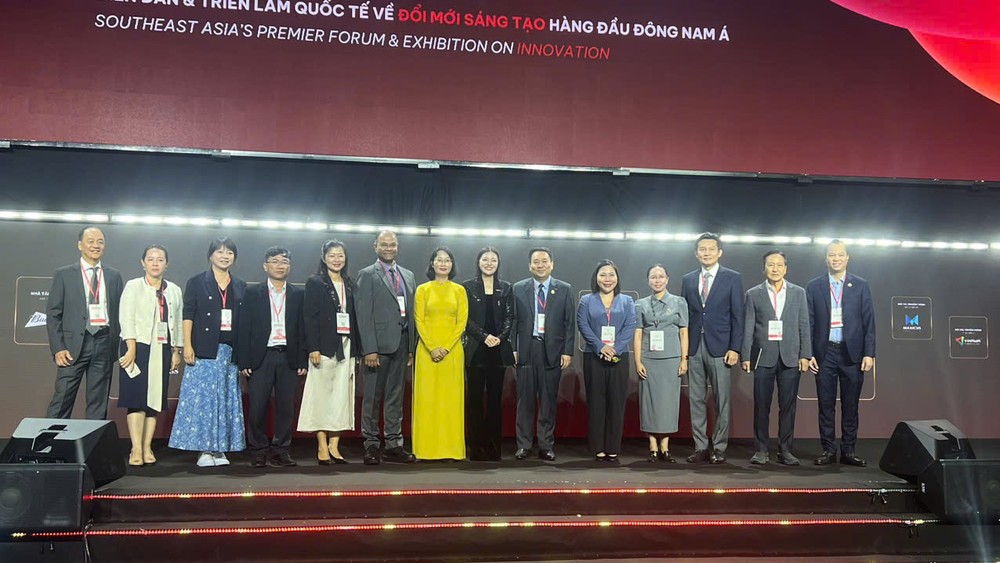
The International Forum and Exhibition on Innovation – InnoEx 2025 officially opened on August 21 at ThiskyHall Sala, drawing more than 30,000 visitors, including 4,000 CEOs and founders, 300 exhibiting enterprises, and 70 investment funds from over 60 countries.
The event underscores HCMC’s emergence as a strategic destination for global creative capital—not only in high technology but also in finance, manufacturing, consumer goods, and the green economy.
In her opening remarks, Ms. Tran Thi Dieu Thuy, Vice Chairwoman of the HCMC People’s Committee, stressed that InnoEx is not merely a showcase for new technologies but a meeting ground for collaboration—where ideas are transformed into real products and viable business models. She affirmed that the city will accompany and support InnoEx to become a signature brand tied to HCMC’s startup and innovation movement. From the forum, she delivered three clear messages to the business and investment community: innovation must be the top priority; ideas only gain value when they become products; and HCMC will always keep its doors open to both domestic and foreign investment.
These messages align with the city’s broader vision for the new development phase, where innovation is no longer confined to technology but permeates diverse socio-economic sectors. In industry and consumer goods, companies such as PNJ, Kido, and AB InBev brought to InnoEx models of green manufacturing, sustainable supply chains, and eco-friendly products.
In finance and banking, HCMC is increasingly regarded as a “testbed” for fintech, insurtech, and green finance solutions, contributing to the realization of Vietnam’s International Financial Center project. In trade and services, the rapid growth of e-commerce, smart logistics, and modern retail is driving demand for data-driven technologies, AI, and automation.
InnoEx 2025 also highlights a range of concrete initiatives. The “Lab2Market” zone introduced nearly 20 research projects from universities and institutes directly to businesses and investors, accelerating the path from laboratory to market. Acceleration programs, such as Innovation Fast Track, help enterprises shorten the journey from idea to commercialization. Meanwhile, Startup Wheel 2025, featuring more than 2,000 projects from 28 countries, demonstrates how HCMC’s startup ecosystem is increasingly interconnected with global networks.

A representative of Qualcomm—which recently inaugurated its third-largest AI R&D center worldwide in HCMC—affirmed Vietnam’s rapid advance toward becoming a regional innovation hub, “The future belongs to those who can turn data into products, services, and intellectual property. In HCMC, we see the right environment to make this happen.”
Beyond technology, multiple sectors are discovering investment opportunities in HCMC. A youthful consumer market with strong purchasing power demands new, smart, and sustainable products. The city’s network of high-tech parks, industrial zones, seaports, and advanced logistics is opening vast potential for supply-chain investment. Education and training are also emerging as strategic sectors, as the city sets its sights on cultivating a high-quality workforce for key industries.
Vietnam’s economy grew 7.52 percent in the first half of 2025, with the digital economy reaching US$36 billion, accounting for over 18 percent of GDP, and projected to rise to 30–35 percent by 2030. As the nation’s economic locomotive, HCMC serves both as a policy testing ground and as a dynamic market where enterprises, funds, and startups can roll out new models.
The city leadership’s three key messages, combined with the scale of InnoEx 2025, send a strong signal: HCMC is not only positioning itself as a high-tech hub, but also as a multidisciplinary convergence point for global capital, ideas, and creative knowledge. From this foundation, the city is making steady strides to become one of Southeast Asia’s leading innovation centers, standing shoulder to shoulder with the region’s foremost technology and financial hubs.
























